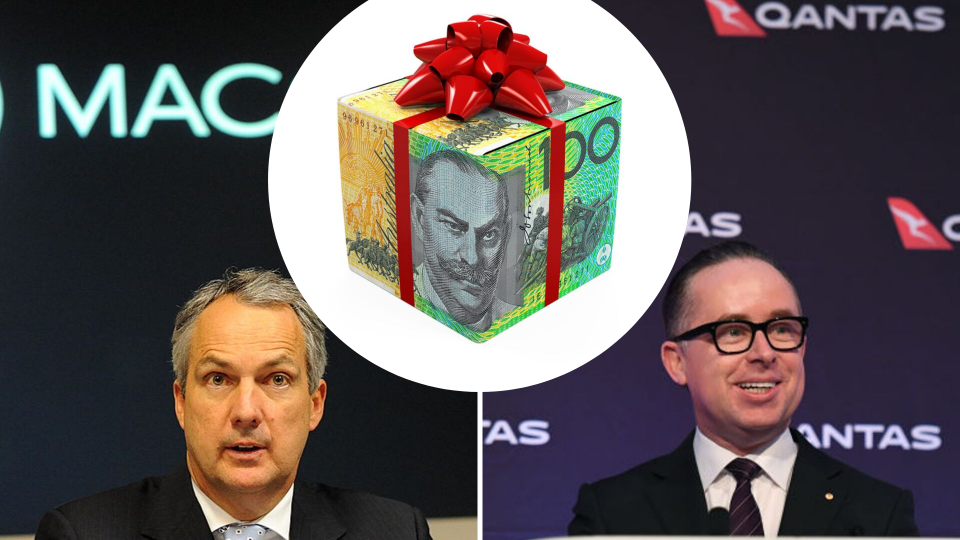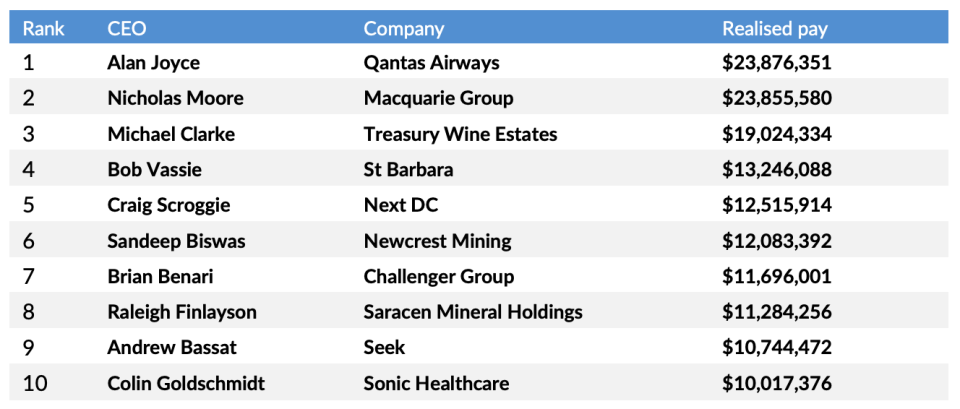‘Culture of entitlement’: Royal Commission had no effect on executive bonuses

The Oxford Dictionary describes a bonus as a “sum of money added to a person's wages as a reward for good performance”.
But according to new research from the Australian Council of Superannuation Investors (ACSI), that definition doesn’t hold true among Australia’s C-suite.
Related story: Immigration success: Half of top CEOs were born overseas
Related story: The degree that makes most CEOs: Not law or business
Related story: ‘Absolute nonsense’: Only 12 female CEOs in Australia’s biggest 200 companies
Out of all eligible ASX100 CEOs, only one – Domino’s Don Meij – did not receive a bonus for the 2018-19 financial year, well below the six CEOs who did not receive a bonus in the year before.
This is against a backdrop of a Royal Commission into the banking and financial services sector which laid bare systemic leadership failures, ACSI CEO Louise Davidson said today (Tuesday 17 September).
“The way bonuses are being handed out suggests there is a culture of entitlement whereby supposedly ‘at risk’ pay is not very risky at all,” she said.
“These payments occurred in a year when the Royal Commission was in full swing, revealing evidence that executives were not being held accountable for poor conduct, and in the wake of soaring ‘first strike’ votes against remuneration reports.”
The analysis of CEO pay also found that the median ASX100 CEO received 70 per cent of their maximum entitlement. This figure has remained practically the same over the past four years.
Five CEOs – Crown’s John Alexander, Treasury’s Michael Clarke, TPG Telecom’s David Teoh and Adelaide Brighton’s Martin Brydon – received 100 per cent of their maximum bonus.
Additionally, the median bonus awarded to an ASX100 CEO was $1.61 million – the second-highest in the 18 years ACSI has been conducting the survey. However, the median bonus received in cash and not equity fell 16.5 per cent to $927,159.
“Clearly, corporate Australia is not getting the message that bonus payments should be variable and awarded for stretch performance, rather than being fixed pay under another name,” Davidson said.
“This is a failure of both discipline and leadership.”
Australia’s highest-paid CEOs named
However, there have been some improvements around broader remuneration, the ACSI CEO added.
Some companies like Telstra, Woodside and Iluka shifted remuneration to include deferred equity and long-term incentives.
“Investors want to see a greater focus from boards on assessing whether their existing incentive schemes are
truly rewarding executives for exceptional performance, or just a top-up for meeting budget.”
The ACSI report also revealed Australia’s highest-paid CEOs.
Qantas CEO Alan Joyce topped the list, with a realised pay of $23.88 million - that is cash and equity remuneration, followed by Macquarie Group’s Nicholas Moore, who took home $23.86 million.
Moore also received the highest bonus.
Treasury Wine Estates’ Michael Clarke, St Barbara’s Bob Vassie and Next DC’s Craig Scroggie rounded out the top five.
However, all 10 made more than $10 million.

Declining public trust a problem
The Royal Commission found that in Australia’s banking and financial services sector, institutions were simply seeking “their share of the customer’s wallet”.
“And if it [entities’ conduct] has not broken the law, the conduct has fallen short of the kind of behaviour the community not only expects of financial services entities but is also entitled to expect of them,” Commissioner Kenneth Hayne wrote in the three-part document.
The commission saw all four CEOs of the major banks at the time take significant pay cuts.
Then-CEO of NAB Andrew Thorburn took a $2.073 million pay cut, while the Commonwealth Bank’s Matt Comyn forfeited $653,000 in bonuses in 2018.
Westpac’s Brian Hartzer saw his pay fall $600,000 to $4.9 million and ANZ chief Shayne Elliott took a $950,000 pay cut to $5.25 million.
But according to research from Core Data, it wasn’t just major banks which saw a fall in trust. The superannuation, financial advice, government, media, real estate and insurance sectors also suffered a decline in trust.
Davidson recognised the declining public trust in the wake of the Royal Commission.
“Public trust in institutions has been demonstrably undermined by revelations in the Financial Services Royal Commission, and in the wake of a soaring number of ‘first strike’ votes against remuneration reports – including a record 88 per cent vote against NAB,” she said.
“Intuitively, we would have expected that bonus outcomes would have been lower amid such intense scrutiny from regulators, politicians, the public and investors.”
The future of work will be discussed at the Yahoo Finance All Markets Summit on the 26th of September 2019 in the Shangri-La, Sydney. Check out the full line-up of speakers and agenda for this groundbreaking event here and buy tickets here.

 Yahoo Finance
Yahoo Finance 
